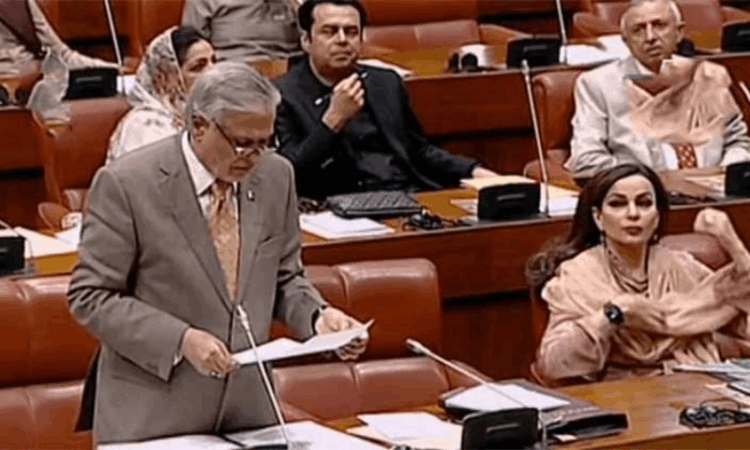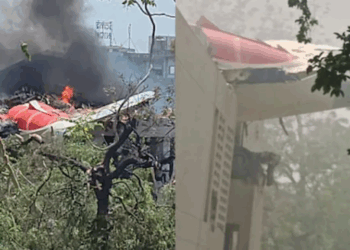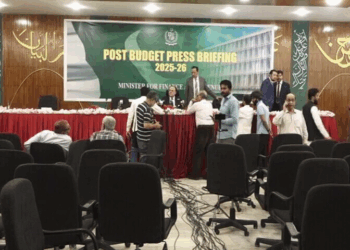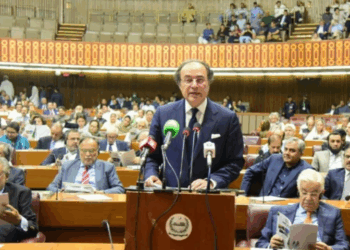Islamabad, April 25, 2025: The Senate of Pakistan on Friday unanimously adopted a resolution strongly condemning recent Indian actions and reaffirmed its commitment to deliver a firm and fitting response to any misadventure by New Delhi.
The resolution, moved by Deputy Prime Minister Ishaq Dar, categorically rejected Indian allegations and reiterated Pakistan’s staunch opposition to all forms of terrorism. “Pakistan will not tolerate any adventurism and reserves the right to respond decisively,” the resolution declared.
Addressing the upper house, Dar noted that India had not directly named Pakistan in connection with the Pahalgam incident and provided no evidence linking Pakistan to the attack. He further emphasized that the Indus Waters Treaty (IWT) cannot be unilaterally revoked, underscoring that any such action would require mutual consent under the terms of the agreement.
“Water is the lifeline of 240 million Pakistanis,” Dar stated, adding that the National Security Committee (NSC) had already declared any attempt to halt river flows as an act of war. He accused India of obstructing peace and development in South Asia, pointing to its role in paralyzing SAARC initiatives.
In a significant move, Dar announced that Indian nationals in Pakistan under SAARC visas have been ordered to leave the country within 48 hours. He praised the opposition for standing united with the government during a time of national crisis.
On the diplomatic front, Dar revealed that 26 countries had already been briefed about the situation, with further outreach ongoing. “A call with the Saudi Foreign Minister is scheduled for 7 p.m. today at his request,” he said.
Dar concluded his address by asserting that Pakistan’s armed forces are on high alert, fully prepared to respond in kind, as they have done in the past.
Opposition Leader Shibli Faraz echoed the government’s position, declaring that the resolution sends a unified message to adversaries. He criticized India’s blame tactics following the Pahalgam attack, questioning how such an incident could occur under the watch of more than 750,000 Indian troops stationed in the occupied valley. “This raises serious questions about India’s internal security,” he remarked. Quoting PTI founder Imran Khan, he added, “Pakistan is more precious to me than my own life.”
Senator Sherry Rehman condemned what she described as “water terrorism” by India and reaffirmed that the Indus Waters Treaty cannot and will not be suspended unilaterally. She highlighted ongoing human rights violations in Indian-occupied Kashmir and referenced past Indian aggression, including the Pulwama episode. “India even had tea in Pakistan,” she quipped, referencing the 2019 capture and release of an Indian pilot.
Senator Aimal Wali Khan described India’s actions as “shameful” and warned that no compromise would be made on Pakistan’s sovereignty. He cautioned that if the Indus Waters Treaty is breached, the Simla Agreement would also be considered void.
Meanwhile, the Foreign Office (FO) on Friday issued a stern warning in response to India’s provocative statements and actions. “Any attempt to block river waters will be considered an act of war,” FO spokesperson Shafqat Ali Khan said during a weekly press briefing.
He said the NSC had outlined several countermeasures following India’s sabre-rattling in the wake of the Pahalgam attack. “India’s unilateral move to suspend the Indus Waters Treaty reflects its irresponsible conduct and lends credence to the two-nation theory,” he said.
Khan confirmed that the Wagah Border had been closed and that Indian aircraft were no longer permitted to use Pakistani airspace. He stressed that Pakistan’s armed forces remained vigilant and fully capable of defending the country.
The tensions stem from a deadly attack in Pahalgam, located in India’s Jammu and Kashmir territory, where gunmen opened fire on a group of tourists, killing 27 and injuring 17. Indian authorities quickly blamed Pakistan for the assault, despite lacking concrete evidence. The attack has been described as the worst of its kind in nearly two decades.
Following a high-level cabinet meeting chaired by Indian Prime Minister Narendra Modi, India announced the suspension of the Indus Waters Treaty, closure of the Attari check post, and other retaliatory steps, sharply escalating tensions between the two nuclear-armed neighbors.








